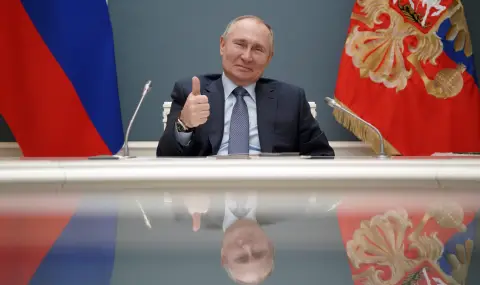Without fertilization, farmers cannot count on high yields, but in the meantime, artificial fertilizers are too expensive, writes the German public broadcaster ARD.
Wheat producers are under particularly great economic pressure, as its prices on the stock exchange fell even further last year. Farmer Bernhard von Weichs from the Kassel area, for example, says that fertilizer prices have now increased by around 30 percent, and this alone is resulting in additional costs of around 30,000 euros for his farm. However, wheat prices have not risen, on the contrary - they have fallen.
Artificial fertilizers consist of 90 percent natural gas
Von Weichs, who has a medium-sized farm, is worried. "Will we soon no longer be able to produce flour from German wheat?" And he is not the only one affected by the problem - wheat is still the most important cereal crop in Germany, it is grown on an area of 2.62 million hectares, according to ARD.
Fertilizer prices in Germany have increased enormously since the outbreak of Russia's offensive war against Ukraine. Artificial fertilizers consist of over 90 percent natural gas and in times of rising energy prices are becoming extremely expensive for producers. In the first weeks after the start of the war, the price of mineral fertilizers jumped from 250 to 1,000 euros per ton, and has been fluctuating constantly since then, following the price of gas.
Vladimir Putin is taking advantage of the difficult situation of farmers in Europe and is attacking the European market with Russian fertilizers. At the same time, he can bypass the European gas embargo by importing gas to Europe in the form of nitrogen fertilizers.
Since the start of the war, Russian fertilizer exports have skyrocketed, increasing by another 33 percent in 2024 alone, as reported by the "Reuters" agency. Meanwhile, Russia is the EU's most important exporter of fertilizers, importing around 6.2 million tons since the start of the war, according to the European Commission.
European producers are the ones who suffer
Since Russian fertilizer producers have minimal natural gas costs, they can easily ruin German fertilizer producers with their dumping prices, as the industry complained to ARD. One producer told the German media that the market is literally flooded with cheap fertilizers, which is why production in Germany itself has shrunk by between 50 and 60 percent compared to the pre-war situation.
European fertilizer producers can hardly compete with the Russians' dumped products. If this trend continues, there is a danger that ammonia production in Europe will end and Germany will become dependent on Russian fertilizers. These concerns are also shared by the Norwegian concern "Yara", one of the largest ammonia producers in the world. "The production of mineral fertilizers in Germany and in Europe is part of the critical infrastructure. It must be a strategic goal so that we can maintain our independence from autocratic countries in the food sector,", Marco Fleischmann of the concern "Yara" told ARD.
The mineral fertilizers are delivered via the Baltic Sea
But how do the fertilizers get to Germany? There is no official information, although the business with Russian fertilizers is not illegal. Nitrogen fertilizers have not yet been included in any of the EU sanctions lists, the German public-law media outlet points out.
Journalistic investigations lead to St. Petersburg. The Swiss-registered company EuroChem has had an extremely modern fertilizer factory there for several years. An analysis of cargo ship traffic shows that vessels loaded with fertilizers regularly pass through the Baltic Sea and thus deliver them to the European domestic market. The cargo ship "Kalin", for example, brought 5,500 tons of fertilizer from the Russian city of Vyborg to Bremen in March. Their estimated value is around 2.5 million euros.
The port authorities do not know who is behind the import and transported the fertilizers to Germany. "Customs cannot oppose this cargo, because neither the ship, nor the owner, nor the cargo are on the sanctions list," Joachim Butte from the port of Bremen tells ARD.
Politicians want to impose tariffs
There is growing opposition to this process among politicians in Brussels and Berlin, as large imports of fertilizers from Russia bring billions to the Russian budget. There is also something else - the latest investigations show that Russian fertilizer factories are more directly linked to military production than previously thought. For example, according to "Reuters" the company EuroChem has supplied 38,000 tons of nitric acid to Russian weapons factories to produce ammunition.
German politicians see the danger and are meanwhile pleading for an expansion of the EU sanctions regime. Tobias Goldschmidt, the energy minister of the state of Schleswig-Holstein, told ARD: "It is time for a decisive resistance to the import of fertilizers from Putin's St. Petersburg. The federal government must exert pressure so that an effective sanctions regime without backdoors can be quickly imposed at European level.
Author: Peter Kreisler (ARD)
